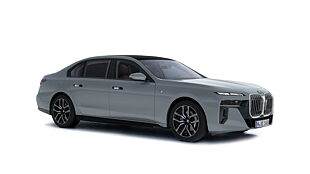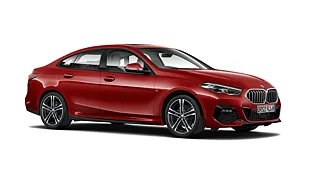Introduction

What you see here is the second generation BMW X1, a vehicle that fits into the German car maker’s Sports Activity Vehicle label. Launched earlier this year at the Delhi Auto Expo, the new X1 is built on the UKL, front wheel drive, platform which also underpins the new Mini range of cars. This new SAV, BMW claims, offers more space, features, enhanced ride and comfort, superior fuel efficiency and reduced emissions over the outgoing model. We road tested the new X1 to find out.

Design and Style

While it looks nothing like the outgoing car, you will agree that the new X1 does look more like an SUV. It’s mainly because the proportions have swollen including 53mm added to the car’s overall height. Nevertheless, the fascia is still dominated by the distinct BMW kidney grille, three section air-intakes on the front bumper, and the characteristic twin circular head lamps. In profile, the new X1 gets a shorter hood and a higher but swooping down roof line. A prominent crease runs over the beltline that merges with the L-shaped tail lamps that accentuate the rear’s width.
BMW is selling the new X1 in three trims – Expedition, xLine and the top of the line M Sport. The Expedition is available only as a 2WD (sDrive), the xLine can be bought either as a 2WD or AWD, and the M Sport can only be had as an AWD, or in BMW speak, in xDrive form.

Interiors

Getting into the new X1 is a breeze thanks to easy ingress. Once seated you notice the huge windscreen and the reasonably large window panels that aid visibility. However, the dimensions of the rear windscreen do hamper the rear view. And the absence of a rear view camera doesn’t help when parking. It does get parking sensors, but for a car this size, nothing beats a camera.

The new X1 might have grown in size but the seats have shrunk. Thankfully, these are adequately bolstered and offer good support even though the accommodation is tight. Plus, the adjustable driver’s seat and a steering column that can be moved for both reach and angle, allows for a comfortable driving posture.

As far as quality goes, it’s a solidly built car which is communicated well by the precise and well-weighted shutting of doors. Even inside, it’s difficult to fault the plastic, and the wood and metal finishes, be it on the dash, doors or the central console. The various control elements – stalks, dials, buttons, et al – feel good to the touch and their working has a strong tactile feel too. The chunky multi-function steering wheel feels good to hold as well.

Design wise, it’s a typical BMW interior. Large twin dials with a small digital readout at the bottom make up the instrumentation; the centre console is a couple of cup holders along a basic looking iDrive control and some stowage space; and the dash design is dual tone, multi layered and dominated by a tablet style free standing screen. Moreover, most buttons are placed perfectly within reach, there’s utility space under the centre arm rest which also holds the aux, usb and power outlet functions, and there’s some more space ahead of the gear lever and on the door for knick-knacks.

The new X1 might be lesser on length and wheelbase compared to the older version, but it is in fact more spacious. It has more head and knee room all round and even in terms of shoulder room, the new X1 can accommodate three with more ease now. Additionally, the rear seat backrest is now adjustable adding to comfort. What we would have liked better though, is more thigh support for the rear seats. And of course the tall transmission tunnel does ruin the seating for the rear middle passenger. The boot space has gone up too on the new SAV; it now measures 85 litres more at 505 litres. Also, switches on either end of the boot help automatically release the seats for the 40:20:40 folding facility to liberate more boot space.

Safety and Equipment

The xLine trim we have here is the middle variant and it gets these additional features over the base Expedition: Aluminium satinated roof rails, rear seat adjustment, interior light and ambient light package, and a multifunction sport leather steering. There’s also a panoramic sunroof, 205 Watt HiFi loudspeaker system with seven speakers, matt wooden inserts and 18 inch Y-spoke alloys (17 inch on Expedition). The M Sport meanwhile gets even more stuff.

There’s the M Sport package that includes a front apron, side skirts, wheel arch trims, body colour cladding, rear apron with diffuser inserts, exclusively designed kidney grilles, M logos, M Sport suspension, M door sills and keys with the M logo. Additionally, it gets roof rails in high gloss, multifunction sport leather steering in nappa black and M badging, front sport seats, iDrive touch controller with split screen function and integrated hard drive for maps. This version also gets a heads-up display, navigation, M light alloy wheels and a unique paint shade called estoril blue.

Safety wise, all variants are equipped with six airbags, ABS with brake assist, cornering brake control, dynamic stability and traction control. You also get a run flat indicator, run flat tyres with a spare wheel, three-point seat belts all around, side impact protection, ISOFIX child seat mounting and an immobiliser.

Engine, Performance and Braking

This avatar of the new BMW X1 uses a 1995cc, four cylinder, diesel motor. It is the same mill that features in the 320d. This new engine has six more bhp and 20 more Nm of torque over the outgoing engine. And it is supposed to be 17 per cent more fuel efficient. BMW chose to stick to the same 90mm and 84mm bore and stroke for the new engine but it lightened the parts, redesigned the intake and exhaust and got the newly designed Bosch common rail injection system to deliver fuel at a markedly higher 2000bar pressure.

The engine called B47 also uses a new variable geometry turbo that promises to cut down frictional losses by approximately 50 per cent. There’s a new automatic eight-speed gearbox too. Gone is the older ZF unit and instead the new X1 uses an Aisin eight-speed ‘box. The reduced convertor slip of this new gearbox cuts energy losses, and its wider gear spread keeps revs lower at higher vehicle speeds. While the Expedition variant gets only the gearbox, the xLine and M Sport gets it with launch control and paddle shifters too.

Hit the start button and you will begin to appreciate this motor’s extra smoothness, even at idle. On the move, pace builds up in a linear fashion from 1500rpm onwards. There’s enough punch throughout the rev-range and it briskly picks up speed faster than it feels. Three pre-set modes have been provided in view of making the driving chores easier. Eco-pro, as the name suggests, is meant to derive the best efficiency with more-than-adequate performance for most situations. In this mode the gearbox is extremely eager to upshift as soon as you lift your foot from the accelerator pedal.

With the coasting function factored into this mode, at speeds between 50 and 160kmph, the powertrain is disengaged as soon as the driver backs off the accelerator pedal. However, even in this mode, all that’s required for an extra spade of performance, is a jab of the accelerator pedal. You will then be able to witness the revs climb quickly to 4500rpm. On the other hand, comfort mode is a good place to be for a nice and even balance of performance. Shifts are slightly quicker due to the gearbox’s quicker response from pedal inputs. However, it’s the Sport mode that makes this engine the most entertaining. It makes the utmost of the power on tap and holds on to a required gear for optimum performance.

This potent gearbox and launch control collectively took care of despatching our 0-100kmph sprint in 7.83sec. Even kickdown times were pretty impressive with the car posting 4.87sec for the 20-80kmph run and 6.31sec to crack the 40-100kmph test.
Ride and handling

With the suspension setup on the new X1, there's a constant thud from the suspension which makes the ride feel slightly stiff at low speeds. As speeds pick up the X1 bobs and also tends to rock from side to side especially when one side of the wheels encounter a bump, but you don't get thrown about in the car. This is mainly due to the height of the car. In fact, more than the ride itself, it's the noise from the suspension that lends the occupants the feeling of an uneven ride. On the other hand, the steering is really nice. It is quick off the centre and very precise. Body control too is quite decent. Though there is body roll, there's loads of grip thanks to the X1 now coming with AWD. That brings us to the brakes. Inspite of the promising bite on offer, they are just too grabby, and it is very difficult to modulate and drive the car smoothly. You're driving constantly with a jerking motion and this feels uncomfortable.
Price and Fuel Efficiency

With more technology bits incorporated into BMW’s new X1, the xDrive20d gave us 12.46kmpl to a litre of fuel in the city. And this figure increased to 16.1kmpl out on the highway, and is impressive for a vehicle of this size.
While the sDrive20d Expedition costs Rs 29.90 lakh, the sDrive20d xLine is priced at Rs 34.99 lakh. The 4WD xDrive20d xLine is available for Rs 36.99 lakh and the top end xDrive20d M Sport has a price tag of Rs 40.99 lakh (all ex-showroom prices, Delhi). If you’re not an M enthusiast the xLine trim with 4WD makes most sense.
Verdict
Final Rating: 3.99/5

When you look at the latest X1, it is clear how BMW engineers have transformed this car into a more rounded product. One that is hard to resist, you’d reckon. While the driving charm of the outgoing car has faded to an extent, it is not a real deal breaker as the new X1 excels a lot more. It has a potent engine that’s more frugal, has extra space, is more comfortable, and prices too are bang on territory with segment competitors like Merc’s GLA and Audi’s Q3. Now what remains to be seen is if the market responds to it as warmly as it did for its competition.
Pictures: Kapil Angane
BMW rolls out locally assembled X1 from Chennai plant
BMW X1 Li long wheelbase introduced in China
Specifications
| CAR NAME | BMW X1 |
| Variant | xDrive20d |
| ENGINE | |
| Fuel | Diesel |
| Installation | Front, Transverse |
| Displacement | 4 cyls, 1,995cc |
| Bore/stroke | 90.0/84.0mm |
| Valve gear | 4 valves per cyl |
| Power | 187.74bhp at 4000rpm |
| Torque |
400Nm at 1750-2500rpm |
| Power to weight | 126.85bhp per tonne |
| Torque to weight | 270.27Nm per tonne |
| Gearbox | 8-speed auto |
| CHASSIS & BODY | |
| Kerb weight | 1480kg |
| Tyres | 225/50 R18 |
| Spare | Space-saver |
| STEERING | |
| Type | Power Assisted |
| Type of assist | Electric |
| Turning circle | 11.4m |
| BRAKES | |
| Front | Discs |
| Rear | Discs |
| Anti-lock | Yes |
Test Data
| CAR NAME | BMW X1 |
| Variant | xDrive20d |
| PERFORMANCE & BRAKING | |
| 0-20kph | 0.79s |
| 0-40kph | 1.94s |
| 0-60kph | 3.39s |
| 0-80kph | 5.33s |
| 0-100kph | 7.83s |
| 0-120kph | 11.06s |
| 20-80kph in 3rd gear | 4.87s |
| 40-100kph in 5th gear | 6.31s |
| 80-0kph | 22.40m |
| FUEL ECONOMY | |
| City | 12.46 kmpl |
| Highway | 16.10 kmpl |
| Tank size | 61 litres |
| Range | 814 km |
| INTERIOR MEASUREMENTS | |
| Front | |
| Legroom(Max/min) | 840/630mm |
| Headroom(Max/min) | 990/940mm |
| Shoulder room | 1350mm |
| Backrest height | 600mm |
| Rear | |
| Legroom(Max/min) | 850/640mm |
| Ideal legroom | 640mm |
| Headroom | 960mm |
| Shoulder room | 1310mm |
| Seat base length | 440mm |
| Backrest height | 570mm |
| Boot | 505litres |
| Length/width/height | 850/1000/460mm |
| Loading lip height | 690mm |

![BMW X1 [2016-2020] Image BMW X1 [2016-2020] Image](https://imgd.aeplcdn.com/272x153/cw/ec/20227/BMW-X1-Right-Front-Three-Quarter-65929.jpg?v=20160402105618&t=105618180&t=105618180&q=80)






















